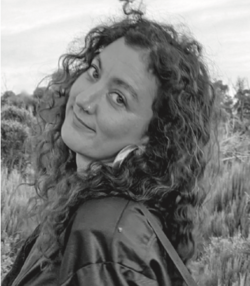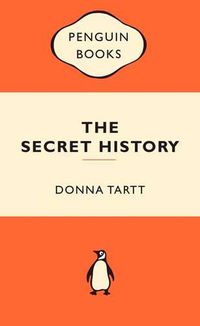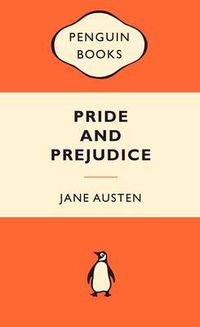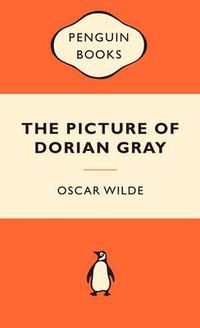This All Come Back Now is an anthology of Aboriginal and Torres Strait Islander speculative fiction edited by Mykaela Saunders. Below is an extract from the short story Terranora written by Mykaela Saunders, which appears in the new collection.
‘Wake up! Wake up, everyone! Ocean Bikies are coming!’ The summons ripples throughout the sleeping camp, waking us all up in waves. I shake my two younger siblings awake and we drag ourselves up to the riverbank. The sun is still a way off waking up. Bleary-eyed and yawning, we warm ourselves by the campfire. The world is still so dark we can’t see nothing outside its glow. Attracted like moths, more and morepeople trickle in to join us in the firelight.
Soon, the headlights of nine water bikes are fanging down the river toward us in a flying arrow formation. They flash their lights at us on the riverbank. Most of the camp is now gathered behind the campfire. As the Ocean Bikies pull up, Aunty Bel waves us all further back. ‘C’mon you lot, give ’em some space.’ We all move back outside of the firelight and sit down in a big half circle to watch them before the welcoming ceremony.
In the pre-dawn, the world turns from black to grey and then stormy shades of blue. The Ocean Bikies tie up at the jetty and help their prisoners off. There are five of them, all dressed in those khaki jumpsuits. Birds start to wake up, yarning to each other through their songs about what the weather is doing and what kinds of business they should all attend to for the morning. Aunty Bel hands out bowls of steaming stew to the prisoners and the Bikies. They all wolf their food down in the soft orange light.
Now that we’ve got a good eyeful of them, everybody starts throwing their two cents in.
‘Raggedy-arse-lookin’ lot, these ones,’ someone reckons.
‘Each new lot’s been lookin’ sorrier than the last,’ another one says.
‘Well, each new lot’s been locked up longer than the last! And you know what goes on in there. Mark my words: the next lot are gonna be even more broken than these ones.‘Everyone murmurs and nods.
‘There’s more women than men,’ says Gary, fidgeting, rubbing his grubby little hands together.Everyone groans.Old Aunt Lorna sits up in her wheelchair.
‘Fuck up, Gary,’ she says. ‘Just because you’re lonely and no woman here wants your creepin’ ways, don’t mean you can start preying on these new ones. That’s bullshit law and we don’t fucken do it. End of story.’
‘Go on, Mum. You’re fired up early today,’ says Gary.
‘Well, son,’ she points over at Kai, that grizzly old Ocean Bikie who’s now walking the prisoners over to us, ‘it’s not my fault these Mad Max motherfuckers don’t know how to liberate people at a decent hour.’
‘What the bloomin’ hell is Mad Max?’ he asks her.Old Aunt Lorna flicks her hand behind her shaved head.
‘Some old, old movie my great-gran showed me. Came out when her nan was a pup. I didn’t care for it though. It was just some white man’s genocidal wet dream.’
The prisoners are made to stand in front of us, a shadowy mass of bodies in a crescent formation on the ground.
Uncle John hands a nice neat pile of perfectly folded fishing nets over to Kai; in return, Kai pulls a big old mess of tangled nets from his bag, and passes them to Uncle John.
My heart sinks. My two younger siblings groan.
‘Dunno how they always manage to fuck these nets up so much,’ says Ruby.
‘Must be out there catching some mighty big fish,’ says Jaxon.
‘Is this all of them?’ Uncle John asks Kai, gesturing to the prisoners. ‘I thought you would have busted more of them out than this.’
‘Well, this was all the blackfellas,’ says Kai. ‘There was an old white woman and a younger white couple we grabbed, but they got off at the coast and took off together.’
‘Prob’ly scared we’d eat them,’ says Uncle John.Everyone laughs, except for the prisoners.
‘Righto then, let’s start. What are your names?’ Uncle John asks them, hands on hips.
The oldest fella speaks. ‘I’m Gene, and this is Grayson. That’s Deidre and that’s Desiree. And this one’s Kel, I think.’The youngest woman nods, eyes downcast.
‘She looks like that olden-day singer Beyoncé,’ says Jaxon, whispering.
‘With nothing of the shape of her!’ says Ruby. They giggle.
Kel’s prison jumpsuit fits her gangly body tight, but the arms and legs ride right up. Her limbs are far too long for the rest of her. The exposed skin on her wrists and ankles looks like molten candle wax – pale and textured like tallow, unlike the smooth brown skin on her face.
‘We’ve already got a Kel here,’ says Uncle John.
‘It’s right, Dad,’ his daughter calls out from up the back, as she kisses her bicep. ‘She can be Skinny Kel.’Everyone laughs, except Skinny Kel.
Nan Jack swans up to the front, yawning, hands closed around a hot cuppa, long dressing-gown flapping around her. It is light blue with white clouds.
‘Jingi wallah witha bayun! I’m Aunty Jack. I welcome you all to our sovereign country, Terranora,’ she says. ‘It means little water in our language. The whitefellas used to call this place South Tweed Heads.’
She stretches her proud arm out to where the sun has just cracked the eastern sky. As it ascends, it illuminates the river all the way to the estuary, like a celestial spotlight scanning the waters from ocean to camp. The light activates the brains of the fish and the insects, kicks them into gear and gets them going for the day.
The newcomers crane their necks to follow Nan Jack’s hand with their collective gaze: her silver rings glint and glow as she traces down the river, which feeds into the estuary behind them.
‘Our people have always been here.’ Nan gestures to us seated in front of her. ‘We have a tight-knit community here. We’re a multicultural success story, with everyone knowing their rights and responsibilities within our Law. These Laws are recorded in our stories, which show us how to look after each other and this place. You will learn the specifics in time, but all you need to know for now is that you’re not alone. And as long as you act in accordance with this, you’re more than welcome to be part of our community too.’

Mykaela Saunders is a Koori and Lebanese writer, teacher, and community researcher. Of Dharug descent, and working-class and queer, Mykaela belongs to the Tweed Goori community. Mykaela has won the ABR Elizabeth Jolley Short Story Prize, the National Indigenous Story Award, the Oodgeroo Noonuccal Indigenous Poetry Prize, the Grace Marion Wilson Emerging Writers Prize for creative non-fiction and the University of Sydney’s Sister Alison Bush Graduate Medal for Indigenous research. Mykaela has worked in Aboriginal education since 2003, and at the tertiary level since 2012. Her research explores trans-generational trauma and healing in her community. Mykaela is currently working on two short story collections and a novel.





